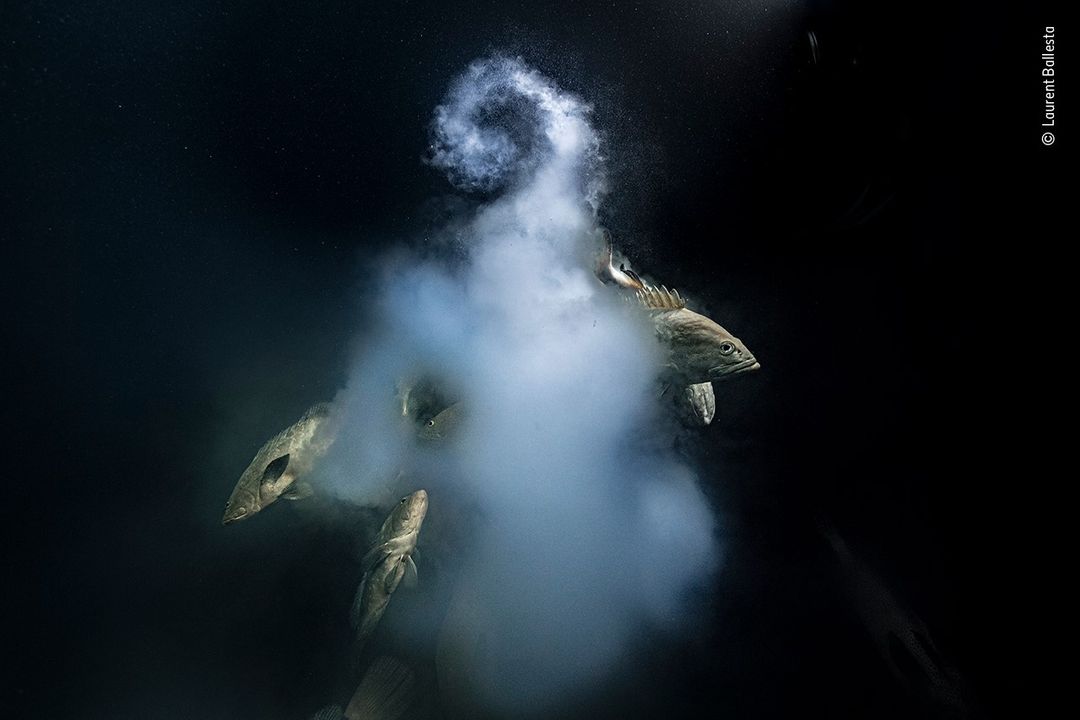The ‘Explosive Fish Sex’ photograph shot by Laurent Ballesta won the top award for Wildlife Photographer of the Year 2021. The image captured the moment camouflage groupers rushed to release their sperm into a milky cloud of eggs dropped by a female fish.
Jury chair Roz Kidman Cox said it was a technical tour de force, as per BBC reports.
Also read: Dubai Expo features Michelangelo’s David, but not in all his glory
“It’s partly the setting, taken during a full Moon, but also the timing of it, knowing when to take the picture.” The annual spawning occurs in July. It’s been known to draw up to 20,000 fish.
The photograph was taken in a biosphere reserve in Fakarava, French Polynesia.
“I’m attached to this picture because of the shape of the cloud of eggs: it looks like an upside-down question mark. It’s a question of the future of these eggs because only one in one million will (survive to) become an adult, but it’s maybe more symbolic of the future of nature. It’s a very important question about the future of nature,” Ballesta said, as per BBC reports.
Also read: Meteorite to Pigeons: 5 bizarre accidents people survived
“It is surprising, energetic, and intriguing and has an otherworldly beauty. It also captures a magical moment – a truly explosive creation of life – leaving the tail-end of the exodus of eggs hanging for a moment like a symbolic question mark,” Cox added.
The Wildlife photographer of the year is organised every year by the Natural History Museum in London. The 57th edition, this year, saw a record 50,000 entries from 95 countries.
Also read: Tired of traffic jams? British firm’s air taxies to land atop offices soon
A 10-year-old Indian photographer, Vidyin R. Hebbar, was awarded Young Wildlife Photographer of the Year. He took a photo of a tent spider in its web. It is called the ‘Dome Home’.
“Its focusing is pin sharp. You can actually see the little fangs if you blow up the picture. I love the way it’s been framed and the way you can see all the texture of the web, its lattice structure,” Roz Kidman Cox told BBC News.
“It was challenging to focus the tent spider because the web shook every time a vehicle passed by,” Hebbar said.
There were a total of 19 winners for as many categories this year.







